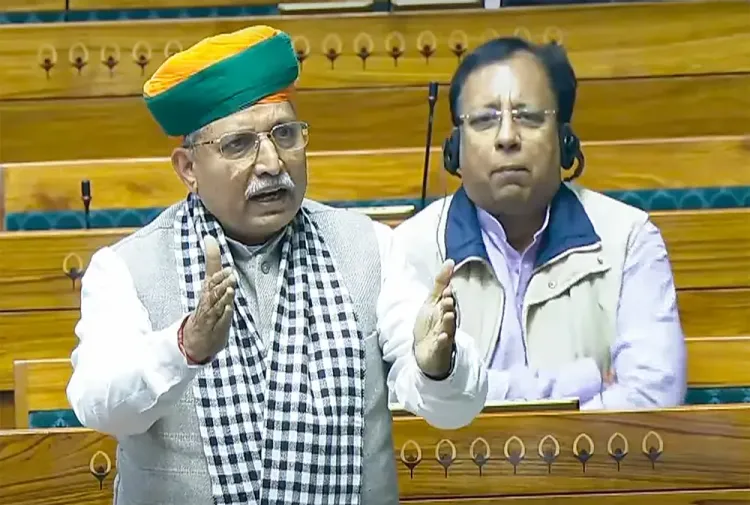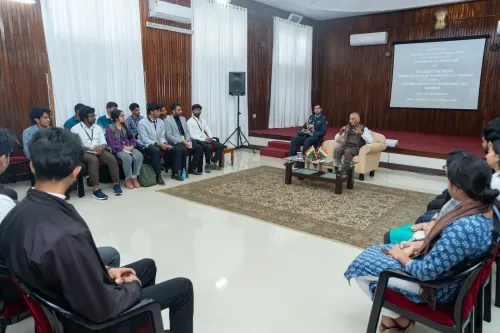Over 42,500 Supreme Court Rulings Translated into Regional Languages Using AI Technology

New Delhi, Dec 20 (NationPress) As the application of Artificial Intelligence (AI) in legal proceedings grows, a total of 36,324 Supreme Court rulings have been translated into Hindi and 42,765 verdicts have been converted into 17 regional languages, now available on the e-SCR portal, as informed to the Parliament on Friday.
The Minister of State (Independent Charge) of Law and Justice, Arjun Ram Meghwal, stated in a written response during the Lok Sabha session that the AI Translation Committees from the High Courts are overseeing all activities related to the translation of both Supreme Court and High Court rulings into local languages.
Emphasizing the AI initiative in legal research and translation, MoS Meghwal mentioned that AI is utilized in areas such as translation, prediction and forecasting, enhancing administrative efficiency, Natural Language Processing (NLP), automated filing, smart scheduling, improving the case information system, and interacting with litigants via chatbots.
The MoS explained that under the e-Courts Project Phase III, efforts are being made to incorporate contemporary technologies for a better user experience and to develop a smart system where registries require minimal data entry and file scrutiny.
To achieve a smart system, cutting-edge technologies such as AI and its subsets Machine Learning (ML), Optical Character Recognition (OCR), and Natural Language Processing (NLP) are being implemented in the e-Courts software applications, as stated by the MoS.
Currently, 17 High Courts have initiated the publication of e-High Court Reports (e-HCR) or e-Indian Law Reports (e-ILR) on their websites, noted the MoS, adding that e-HCR/e-ILR are digital legal platforms that grant online access to judgments in local languages.
In response to a query concerning the government's approach to data privacy issues related to AI use, MoS Meghwal said a sub-committee composed of six judges from various High Courts, supported by technical working group members who are domain experts, has been established by the Chairperson of the e-Committee of the Supreme Court. This sub-committee is tasked with proposing secure connectivity and authentication methods for data protection, ensuring the preservation of the right to privacy.
The sub-committee's mandate includes a thorough evaluation of the digital infrastructure, network, and service delivery mechanisms developed under the e-Courts project to propose solutions for enhancing data security and protecting citizens' privacy.
Highlighting the role of technology in legal operations, he mentioned that the daily proceedings of each case are recorded in the Case Information System (CIS), with litigants being informed through e-Courts service platforms including websites and mobile applications.
Additionally, there are established model regulations for live-streaming and recording court proceedings.










